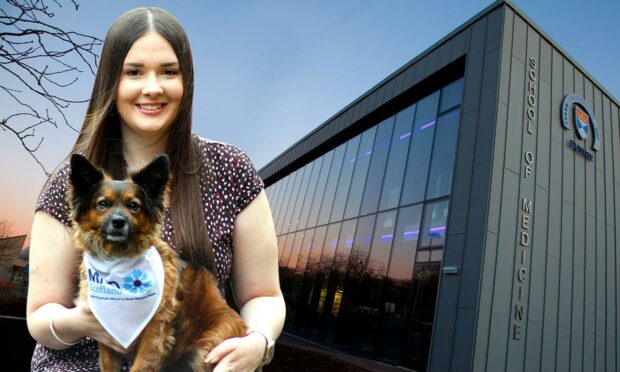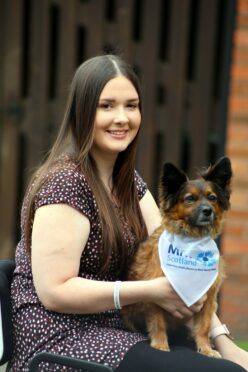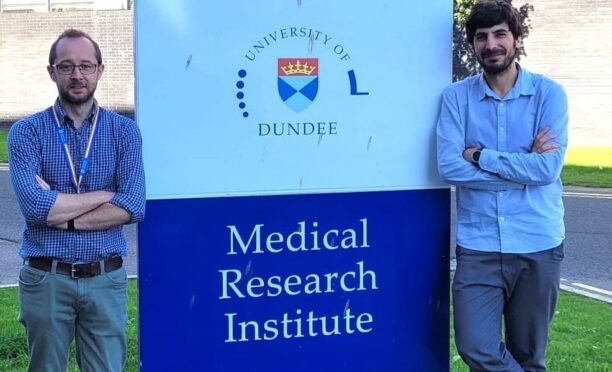Dundee woman Jo Knowlton, who was diagnosed with motor neurone disease (MND) in her 20s, is welcoming new research starting in the city.
And Jo hopes the project at Dundee University, where she studied forensics, will lead to a breakthrough and a future clinical trial she can take part in.
The charity MND Scotland is investing more than a quarter of a million pounds into three new motor neurone disease (MND) research projects, one of which will be run at Dundee’s School of Medicine.
Jo says: “I’m really proud. As alumni of Dundee university, I know what a fantastic facility they have there for research.
“Dundee has been my home for the last 14 years. It would be amazing to be able to say one day the breakthrough came from Dundee.”
Jo, now 31, has been a campaigner and voice for others living with MND since her diagnosis two years ago.
“MND is so behind in terms of treatment and options available. I’d love for us to get to a stage where MND is no longer a death sentence,” she says.
‘I’ll be the first to sign up’
“It’s also great to see where the money from fundraising for MND Scotland is being invested.
“If the research leads to a new clinical trial, I will be first in line to sign up. Hopefully we are not far away from something promising.”
The Dundee project will be run by Dr Chris Henstridge and Dr Francisco Iñesta-Vaquera. Together they will examine a special protein called TDP-43.
Dr Henstridge says: “I’m very pleased MND Scotland has decided to fund our new work at the University of Dundee.
“With my expertise in MND and Dr. Iñesta-Vaquera’s expertise in cell stress, we believe the work we’re about to begin will increase our understanding of the early stages of the disease, and help in the development of new drugs.”
What is MND?
Motor Neurone Disease (MND) is a rapidly progressing terminal illness, which stops signals from the brain reaching the muscles.
This may cause someone to lose the ability to walk, talk, eat, drink or breathe unaided.
There is currently no cure or effective treatment for MND.
What will the project do?
The most common form of MND is Amyotrophic Lateral Sclerosis (ALS). There is currently no cure, due to incomplete understanding of the disease.
Almost every person with ALS has clumps of a protein called TDP-43 and these are linked to cell damage in the brain and spinal cord.
Researchers know that a form of cell damage called oxidative stress occurs in ALS, but they don’t know what happens first or which cells suffer this damage.
By identifying the earliest stage of damage, the research team believes that new drugs could be designed to halt the disease.



